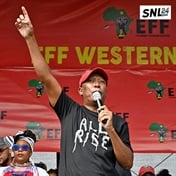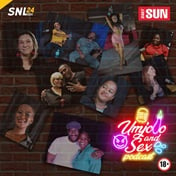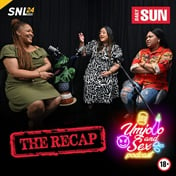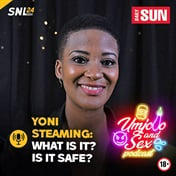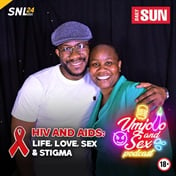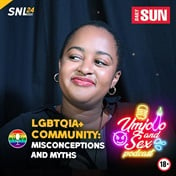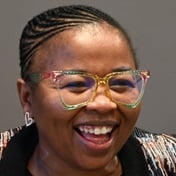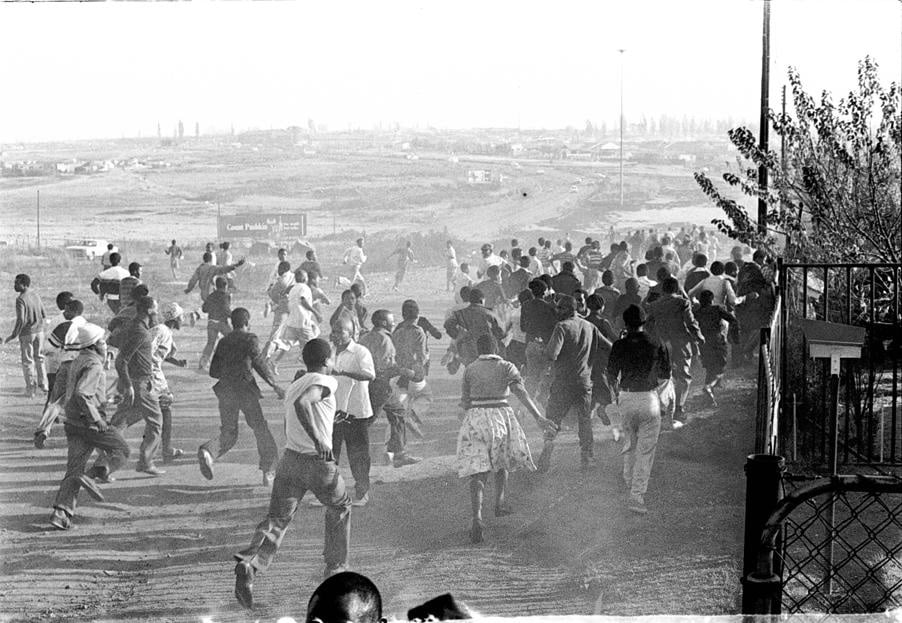
This
is an interview that Tsietsi Mashinini conducted with the media in November 15,
1976 and March 14, 1977.
According
to Wikipedia Mashinini was a bright, popular and successful student at the
Morris Isaacson High School.
He was part of the planned mass demonstration by students for 16 June 1976.
The demonstration became known as the Soweto Uprising and lasted for three
days.
During the mass demonstration several hundred black students were killed.
Interview With Tsietsi
Mashinini Behind the Growing Upsurge in South Africa
[An interview with
Mashinini was obtained October 9 in London, from which the following are major
excerpts. The footnotes are by Intercontinental Press.]
Question: Could you tell us what life is like
in Soweto?
Answer: I don’t know in what way I can portray
the picture. But Soweto is the biggest Black township in South Africa. It
has about 80,000 houses, which are inhabited by more than one million people. I
came from a family of twelve kids. And my parents make it fourteen.
We stayed in a
four room house, and the rooms are about eight by ten. Very few houses
have electricity. Of those with electricity, most of them belong to the
in Soweto had wages just to keep them alive, and not to have any other needs a
human being has. Bourgeoisie in Soweto. It is ghetto life all the way.
Very few gas stoves around. There are lots of basic needs people
cannot afford, because of very low wages. In fact, when a survey was done
in 1974 it was found that 60 percent of people in Soweto had wages just to keep
them alive, and not to have any other needs a human being has.
You
don’t own any property except your furniture. The house is not yours – it
belongs to the Bantu Administration Board.
You are in the urban areas for the purpose of either schooling or working.
If you are not doing either of the two, you are sent to the Homelands.
Soweto has very few recreational facilities. It has two cinemas, about six
municipal halls, and scattered playgrounds here and there. It has almost
300 schools, from grade level Sub A through matriculation. There is no
university in Soweto. If you want to go to university, you go to one of
the tribal universities.
Q. You mentioned bourgeois layers in Soweto. Can you explain that
further?
A. They are a very small percentage. In fact they have a special
township, a place for the rich, called Dube. That is where you find most
of the big houses and mansions. Most of the people who stay there are
doctors, lawyers, and people who have got the best jobs in town. The rest
of the people are labourers and drivers. They constitute 85 percent.
Q. Could you describe the conditions in the schools and the education
system for Blacks in South Africa?
A. Besides having to buy everything you need at school, you pay high
school fees. There are a number of bursaries that are granted on merit,
but usually they are granted to students from rich families. The classes
have almost eighty pupils in them. There are two or three on a desk even
at high school. At primary school level you sit down on benches in rows
with no desks at all. Our schools don’t have heaters. The school
simply has a classroom, a blackboard, and the Department of Bantu Education
provides the chalk and writing material for the blackboard. Everything
else in the classroom is provided by the pupils.
After April, the Bantu Education Constitution laid down that if you have not
paid the fees you should be sent out from the school.
If you don’t wear the proper school uniform every day, you are liable to
expulsion. Teachers cane you for whatever offence, and each school has
its own regulations.
The school I came from, you enter at 7 a.m and school goes out at 5:30 p.m,
with two breaks in between: one at ten o’clock for twenty minutes and a lunch
break between one and two o’clock. You get punished for not having
shoelaces, belts, ties, and buttons. And if you are a girl and you are
wearing a tunic, you get punished if your buttons do not correspond to your tunic.
In South Africa, the teaching is very impersonal and indifferent.
It’s only in rare cases where you find the teacher with an interest in his
students or pupils. Most of the time the teacher just comes in, gives you
work, and goes out.
Q. Are all the teachers Black?
A. Yes, all Black. In my school there was a white teacher.
He came this year and was not well received by the students. I
understand there are almost eighty white teachers in high schools all over
South Africa. This is supposed to project an image overseas that Blacks
and whites are living quite happily, that we even have white teachers in Black
schools. I don’t know how many times that teacher nearly got beaten up at
school by students because of the bitterness the Black people have.
Q. Can you describe how the recent student protests developed around the
Afrikaans language?
A. We don’t have much political education in South Africa and
most of the material you read out here is banned in South Africa or it is
for the whites only. So you come to realise that you know very little
about the outside world except when Kissinger is going to Zurich. That,
they announce. The local papers concentrate on local news.
Newspaper reading has never been the interest of students for a very long
period, because the newspapers were white.
A South African high-school student because it was there that the eruption
started, at high-school level around the South African Students
Organization-cannot tell you that Transkei is another aspect of oppression
because of this and this. But in some way or another, the student understands
and indentifies all elements of oppression like this Afrikaans thing-that is,
our education, which is simply to domesticate you to be a better tool for the
white man for the white man when you go and join the working community.
Q. Until now all teaching was done in English?
A. Yes all the time.
Q. And now the proposal was to make all teaching in Afrikaans, or just
some of it?
A. Every student is doing seven subjects, at least until high-school
level: the two official languages, English and Afrikaans, your mother tongue,
and four other subjects. This Afrikaans policy compelled you to do two of the
subjects in Afrikaans and two in English.
With the type of education we have and where you do not have much material to
research on, students find difficulty in understanding the concepts involved in
physics, biology, and geography. And now, if you do all these things in a
language you are not conversant in, and the teacher has never been taught to
teach in Afrikaans - Afrikaans has got very circles in society because
everywhere the medium of English is used, except in official pamphlets where
Afrikaans and English is used – and all the time for almost eleven years you
have been taught through the medium of English, it is difficult to switch
over.
A number of junior secondary schools went on strike a then some went back.
But there was one in particular, Phuti, which went on strike for six
weeks and they would not go back until Afrikaans was scrapped as a
medium of instruction.
When any school was involved in an incident of some sort, the press built it up
as another protest against the Afrikaans language. There was an incident at
Naledi high school where security branch officers went to pick up a student for
detention. When the go there, the students decide to beat up the security
branch officers and burn their car. The press picked that up as another protest
of Afrikaans medium of instruction and then it was the talk of the
township.
We were getting sick and tired because instead of oppression being gradually
removed from us, the system was in fact implementing some of the thoughts of
oppressing us. I realized that people were fed up with this sort of
thing, but nobody had the guts to start anything. I decided that if we were to
demonstrate it would have an effect because there has never been a
demonstration before in Soweto. There were demonstrations some time before we
were born or when we were little kids, like Sharpeville demonstration - of
which we know very little because any material written material, about
Sharpeville was banned.
We heard that the students of the University of Witwatersrand had
demonstrated.
So I thought that if we could demonstrate it would be something out of the way.
I was the president of the South African Student Movement [SASM] at my
high school, Morris Isaacson. I called the students together, and on the
Wednesday a week before June 16, we talked about it. I delivered the speech on
the South African situation and got the students in a mood to do
anything.
On Wednesday, Thursday, and Friday I gave them the briefing for the
demonstration. On Saturday, we put a placard at the school gates saying:
“Notice – no Security Branch allowed. Enter at risk of your skin.” Now the
press put that up again as another protest against the Afrikaans issue. On
Sunday there was a SASM meeting of all the students in Soweto. I went to the
meeting and got a few chaps from the other schools to help me, and we decide to
mobilize all the high schools and junior secondary schools.
We did that on Monday and Tuesday, and then on Wednesday we went on the streets
demonstrating.
We were very peaceful all the time and there were just placards denouncing
Afrikaans as another method of oppression.
The idea was coverage on this junior secondary school, and there, myself and a
number of other students had drawn up a memorandum to the effect that we Soweto
students totally rejected Afrikaans as a medium of instruction and we were not
going back until this was scrapped. We were converged already, and I still
trying to tell, the students to settle downs so that we could address them
properly, when the cops started shooting.
Q. How many students were involved on June 16?
A. The press put it at 10 000. I am not very good at estimating how many people
were there, but I have seen what 10 000 people are. And if I was to compare
that demonstration with others, I we had the biggest crowd on June 16. I think
nearly all the students in central, north, east, and west Soweto were involved.
Only the South was not involved.
Q. How were the workers strikes organized after the student protests?
A.
After June 16 we realized that there were too many killings, we tried to
get a method whereby we could hit the system, and reduce the casualties.
As we did not have guns, our only weapon was to cripple the economy of
the country, lies in Black hands. So the idea was to stop workers going to
work.
So we sent work to the parents, the workers. We requested that from such and
such a date to such and such a date nobody should go to work. And that is how
the workers came into it. They pledged solidarity with the student and stayed
at home. We distributed pamphlets, and students were circulating them, that is
how there organized. All the time they wanted to be involved in the struggle,
but there was no concrete organization which could announce “Don’t go to work
could work” could only be done through students.
Q. Are Black workers being organized on a large scale?
A. Yes I have seen of the underground work.
Q. The clash between some of the hostel workers and the other residents
of Soweto what caused that?
A. Now, in the course of the struggle since the Black Consciousness
Movement was established and even since Mandela time, the hostel dwellers were
always overlooked as a sector of the community. Not much consciousness
raising was done, so the system went to these people and told them to kill
Black leaders. They gave them pictures of Black leaders, mine was
included. They gave them numbers of houses to burn belonging to Black
leaders. So, we knew about this, but we were not in a position to do
anything.
It was confirmed that the system had mobilized all the hostels and fortunate
enough some of the hostels did not participate. Only one hostel did participate
in the murder of Black people. Immediately afterwards, the Black
community reorganized itself to pick the people who did not want to pledge
themselves in solidarity with the Black students.
But the hostel dwellers became aware of the fact that the system was just using
them and so they pledged solidarity with the students. Now they are
hitting very hard against the system. The only thing which will happen is
that it won’t be reported what the hostel dwellers are doing against the
system. It will only be reported what they are doing against the students.
Q. What was the Students Representative Council?
A. The SRC was formed after June 16 when we were
planning the second demonstration for the release of the detainees, requested
each school to send two representatives. We did not want the thing to
appear as if it was organized by SASM, otherwise SASM would be declared a
restricted organization. By even so, all members of SASM were detained
and I’m the only one left of the national and regional executive councils.
Q. Have all the leaders of SASO and the Black
People’s Convention been detained?
A. Yes, all of them. The SASO general student
council was from July 5 to July 9. The national president was elected
after the riots, was then detained in connection with the riots. Before
the demonstrations Mongezi Stofile was an ordinary student, but after he was
elected national president he was detained in connection with the riots.
Q. Do you have any connection with the ANC OR PAC?
A. I will tell you something. The ANC and PAC played
their part in the South Africa struggle in the 1950s and 1960s. Right now
there are ex-members of the ANC in the whole of South Africa. But they
are not politically active, that is, have a concept of perpetuating the activity
of the ANC or PAC political ideology. As far as the students in South
Africa are concerned, the ANC and PAC are extinct internally. Externally
we are aware they exist. Internally they are doing no work. There
may be some underground work they are doing which we are not aware of, but as
far as the struggle is concerned they are not doing anything.
Q. Do you think there is a different political outlook
between the old movements, the ANC and PAC, and the Black Consciousness
Movement?
A. Yes there is. There were a number of clashes
between ANC and BCM leaders, because the ANC leaders did not want to recognise
the BCM as a liberation movement.
Q. Why didn’t they want to recognise the BCM?
A. They did not want to understand why BCM was formed when
ANC was the liberation movement. But ANC was banned inside the country,
so a new liberation front had to come.
Q. Can you say something more about the BCM, its origins
and links with similar movements elsewhere?
A. The BCM was formed in 1968. There were student
councils in Natal, Orange Freestate, all over South Africa. They came
together and formed SASO – that’s the mother body of SASM. SASO and SASM
belong to the students, SASO at the university level and SASM at high school to
lower primary level.
Then there is the Black People’s Convention (BPC) with the Black community, the
Black Allied Workers Union with the workers and the Union of Black Women
federations which concerned themselves with different sectors of the community.
Then ideology is the same: to make the Black man more conscious of the evil of
the white man, elements of oppression, and so on. The ideology concerned
is to peacefully bring about a change in the South African social aspect and to
bring about total liberation of the Black man.The BCM, which is a very strong
movement, gained momentum from 1972 until the death of Tiro, the person who
established SASM in 1972 and was assassinated by a letter bomb in 1974 in
Botswana. He was permanent organizer of SASM and was the first national
president of SASM at the high school level. He was one of the Black
leaders who died for the Black course.
Q. We have heard that the BCM is influenced by ideas from the
American Black National Movement?
A. I am not sure. I myself have read very little
material about the Black Power Movement in America. The students in South
Africa do not identify Black Power the way it is identified in America. I
don’t even know how it is identified in America. I believe that Black Power is the
realization of the people of oppression. Immediately they realize they are
oppressed they regroup themselves to fight against the system.
As long as there is a Black person oppressed in South Africa, there will be
Black movements which will result in the concept of Black Power – the eruption
of the Black masses. Black Power is every Black person in South Africa,
Namibia and Zimbabwe.
Q. To what extent have you involved sections of the Asians and
Coloured populations?
A. The ideology of the BCM defines BLACKNESS as an attitude
of mind, and not of the colour of the skin. So it makes provision for the
Coloured and Indian population to be involved in the BCM. The Black man
is any member of the South African community. The difference between the
Coloureds, Indians and Blacks is that Blacks are not referred to as Blacks but
Africans. If you want to differentiate between the three groups, one is
African one is Indian, and one Coloured. They are all referred to as
Blacks.
Q. What have you read in South Africa? Are books and pamphlets smuggled
in which give people an idea as to what happens in the rest of Africa?
A. There are a number of books which are smuggled into the
country. A lot of people possess banned material. You just do not
lend it to people to read because that is where the offence is, by giving it to
people, by circulating it. So if you have banned material you keep it to
yourself. If the system picks you up and you are in possession of banned
material, that is another offence. The first banned book I read was the
Immorality Act, which is a story written by a judge about a white man who was
in love with a Black woman. The next was this book by Nelson Mandela, No
Easy Walk to Freedom. There are quite a number of copies in South Africa.
Mostly what is not banned are SASO and SASM newsletters, but they are
banned after a month or two. Since June 16, everything that was Black was
banned even before it was released.
Q. What about Marxist books? Books by Marx and Lenin?
A. Not even in the libraries. I only learned what it
was when I was in Botswana in exile, that the concept of Marxism is based on
“each according to his abilities, each according to his needs “. Then I
realized that this was exactly what we were fighting for in South Africa.
If you ask the people what type of government they would like to have, a person
cannot articulate in those terms but a person can tell you that those people in
Dube are rich and other people in White City eat cow dung and this is obscene.
That a person gets R 40 and the other person gets R 140 for the same kind
of job per month. If these things could be equal people would live
better. In such parables people will tell you exactly what they want: and
when you come to analyse it all, they want Marxism. They have been
oppressed and suppressed for so long they only want to leave in an equal
society.
Q. How did developments in Mozambique and Angola affect the Blacks
in South Africa?
A. It brought political awareness of the potential Black people
carried in their hands. SASO tried to have a rally sometime before the
independence of Mozambique and that rally was banned. Now, I was a
political infant, and the question arose in my mind why was this rally banned?
You turned to like everything the regime hates. They don’t like anything
to do with Frelimo; then you are for Frelimo. When they were fighting Cubans
and Angolans in Angola, then we were for those people they don’t like.
The fact that they don’t like communism makes you think what communism
is, and “no, I think I want this.” They are not aware that they are
creating this type of thing.
The system more or less made me what I am now because of their constant
oppression. My character was built by the environment that I lived in.
That is why I claim that I am not the only Tsietsi Mashinini – there are
lots of other students who will become active because of what the system is
doing to them.
Q, Because of the level of repression since June 16, do you
think that the South African regime will be able to crush this movement?
A. I think they will ban the BCM and claim that they are
behind all this. But a new liberation front will come up. They are
going to drive the people underground, because the people are going to be
afraid to act the way the BCM has done. A lot of underground work is
going to be done without the knowledge of the system. They will only see
various acts of underground work, but they won’t know who is responsible.
The system itself has created so many enemies. There were people who
sympathized with the BCM, but did not want to have anything to do with politics
for fear of detention. The system was raiding almost fifty homes a night
after June 16, looking for that person or this person.
So many people were killed or detained. So many people have grudges
against the system that they are prepared to do anything against the system
anytime. So many mothers have lost their children. So many fathers
have lost their children. So many husbands have lost their wives.
That is because of the system.
In fact, I would say that the system has done more to heighten consciousness
than SASO, SASM, and BPC have managed in their history.
Q. Do you see the struggle continuing for ten years?
A. Ten years? Five!
Q. You don’t see the present as a short outburst?
A. I see the downfall of the system in five years.
Q. Do you think that it is possible for the regime to do
what it did after Sharpeville and crush the movement?
A. They cannot. If they want to stop Black Power
they have to put every Black person in detention. Because as long as
there are Black people outside, the struggle will go on.
Q. Do you think it will be possible to organize a powerful,
political organization underground in South Africa that could lead a struggle
for power by the Blacks?
A. I think there is already a strong, underground
liberation movement, the BPC.
Q. Not people from the ANC or PAC?
A. I understand that the ANC has its own underground
liberation movement. But there cannot be one underground liberation
movement. Because say fifty people are active in this liberation
movement, these people cannot come out in public to say, “We are doing this.”
So they are acting on their own.
Their results will cause people to say, “Such and such has happened.
Let’s try do it in such a way.” So there are going to be a lot of
underground movements. And I see them as the people who, in fact, are
going to start the revolution in South Africa. That is if the people in
exile don’t start anything before them.
Q. What do you think of the Kissinger talks with Vorster?
A. We are aware of the role of Kissinger with his peace talks.
The peace talks mean that Kissinger is representing the Western world in
South Africa. The Western world has economic interests in South Africa.
The Black masses are revolting against the racist regime. Kissinger
has got to establish peace in South Africa such that their interests are not
tampered with.
The Black student is just beginning to realise his
fight is not just against the racist regime, but that the racist regime has got
its power resources in the whole of the Western world. And that is why
they are rejecting people like Kissinger and so on.
Q. What attitude do you think the neighboring states should take
towards the South African struggles?
A. If they could make military aid available to the South African
struggle it would contribute a lot because that is the only language the people
want to understand now. Armed struggle against the racist regime, that’s
the only thing they see as possible to bring us total freedom. If you
could look into the history of the struggle, you could see that all other means
have been exhausted. The only thing left is armed struggle against the
racist regime.
When we protest in demonstrations, we are mad because we don’t have guns.
When we try to negotiate, it is always said the government is still
considering for indefinite period. And if anybody comes into leadership,
they are detained for indefinite period. The racist regime created so
many draconian laws to prove itself against the Blacks that if you obey the
South African laws there would be political movement in South Africa.
Q. What about the credibility of Buthelezi and other chiefs?
A. They have much support from the hostel dwellers and people
from their vicinities. But the Black students and Black parents in urban
areas, where much of the Black population is, totally reject Homeland leaders
because they are aware of the issue of Homelands and what it means.
Q. What do you think of the Bantustans?
A. Bantustans are supposed to be independent, but they cannot be
independent when they are dependent on the racist regime. If the
Bantustans have their own parliament, prime ministers and legislative assembly,
the final word will always come from Pretoria. Whatever they want to do
on a Homeland scale, the final word always comes from Pretoria.
The Black people do not recognise any leader who is working within the system
to try and bring about a change. All leaders of the government platform
only speak that far and not further. Immediately they go over their
limit, they are just sacked from their position. Homeland leaders and
some new people are brought in.
Pretoria is creating all the puppets – a dozen a day – because they are aware
the political role these people could play to try and suppress the protests of
the people. Now we do not recognise them, especially the students, who
constitute a very powerful liberation front. As long as the students do
not recognise the Homeland leaders, urban Bantu councilors, and so on,
everybody within the government framework. Their independence shall be
recognized by the regime only, not by the people.
Q. What message will you have for the people in
Britain, France or the USA to help the struggle?
A.
For one, by not recognizing the coming independence
of Transkei which is just a political swindle as far as I am concerned, between
Blacks and whites in South Africa.
The people must understand that the racist regime is dependant entirely on
Britain and other countries for arms and so on. And if they don’t support
the racist regime it is entirely their duty to end to make sure that Britain
cuts all ties with South Africa.
FOOTNOTES
1. Afrikaans is the Dutch based language of the Boer
section of the white population.
2. Migrant workers in the urban areas generally
housed in barracks like hostels so as to isolate them
from the rest of the population.
3. Nelson Mandela a central leader of the African National
Congress in the 1950s and early 1960s. He
is now serving a life sentence on Robben Island.
4. African national Congress and Pan Africanist Congress.
5. South Africa’s Black population is composed of 17.8
million Africans, 2.3 million Coloureds,
710 000 Indians. The Indians were originally
brought to South Africa as indentured workers,
and the Coloured are descendents of the early White
Settlers. Indians, Malay slaves, KhoiKhoi,
San, and other African people.
6. Frente de Libertcao de Mocabique (Mozambique Liberation
Front).










